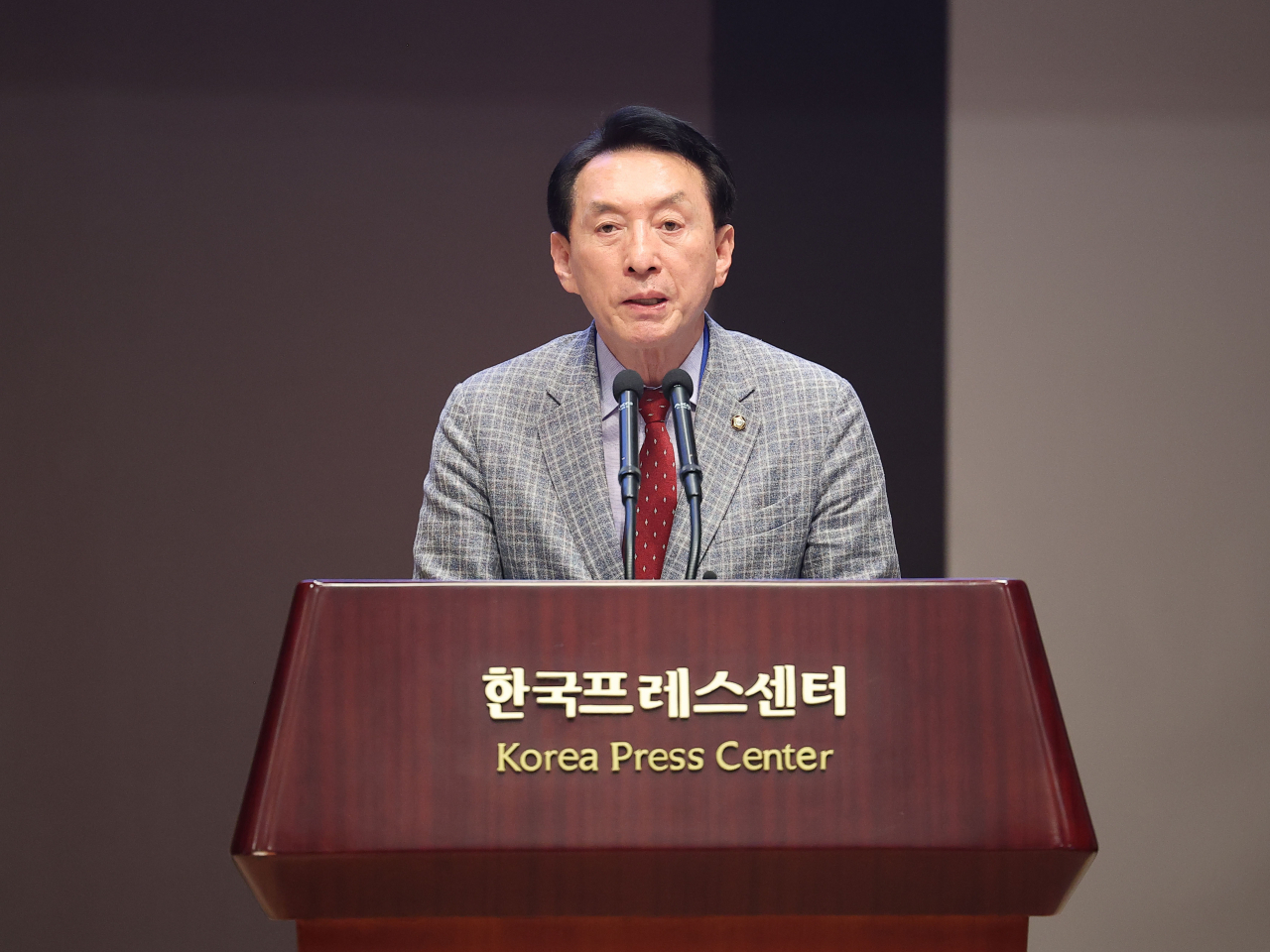
South Korea’s formerly distant relationship with Japan under the preceding administration is getting back to normal with Yoon Suk Yeol in office, according to a former consul general to Osaka and ruling People Power Party lawmaker Rep. Kim Seok-ki.
Kim, the ruling party’s executive secretary for the National Assembly foreign affairs committee, said the country’s relations with Japan, which he assessed as having “worsened dramatically” over the five years of the liberal Moon Jae-in administration, were now getting “back to normal.”
“The last administration, in its pursuit of domestic political interests, put our relations with Japan at risk,” he said, speaking at the parliamentary committee for foreign affairs on Tuesday.
“The then-ruling Democratic Party think tank released a report saying the anti-Japan policies would aid them at the polls. As a result the anti-Japan sentiment, egged on by the Moon administration, was at an all-time high. The ‘Boycott Japan’ campaign led to a serious blow to trade.”
He said that the restoration of ties with Japan under Yoon was being “welcomed by key allies, including the US.”
The momentum witnessed in two consecutive summits in Tokyo and Seoul was anticipated to carry through at the May 19-21 G-7 summit in Hiroshima, he said. At the event, a trilateral summit between South Korea, Japan and the US is slated to take place.
“South Korea is once again Japan’s preferred trading partner. Our security relationship is being stepped up to respond to North Korea’s advancing nuclear and missile programs,” he said.
Kishida returned Yoon’s March visit to Tokyo over the weekend, where the two leaders agreed on dispatching a team of South Korean experts to inspect the wrecked nuclear power plant in Fukushima, Japan, whose wastewater will soon be released into the Pacific. The inspection by the South Korean team will be in addition to that by the International Atomic Energy Agency.
The Japanese prime minister expressed sympathies for South Korean victims of forced labor by colonial Japan, and said that he would pay tribute at a memorial for South Korean victims of the 1945 atomic bomb attack in Hiroshima.
Kim said these were among the “more significant gains from the summit.”
“Now more than ever, South Korea and Japan need to work together,” he said. “I hope for the Democratic Party’s cooperation in the administration’s foreign policy efforts.”
Also at Tuesday’s session, Democratic Party Floor Leader Rep. Park Hong-keun said Kishida’s expression of sympathy for South Korean victims was “not sufficient.”
Kishida said at a news conference that he has “strong pain in (his) heart” thinking of the “difficulty and sorrow suffered by people under severe conditions” during Japan's colonial rule of Korea, which stretched roughly from the beginning of the 20th century until the end of World War II.
“The glass isn’t even half-empty, it’s spilled all over and there’s no water left,” he said, referring to a ruling party lawmaker comment that South Korea and Japan have “filled the glass to halfway.”




![[Weekender] Korean psyche untangled: Musok](http://res.heraldm.com/phpwas/restmb_idxmake.php?idx=644&simg=/content/image/2024/05/02/20240502050841_0.jpg&u=)

![[Eye Interview] 'If you live to 100, you might as well be happy,' says 88-year-old bestselling essayist](http://res.heraldm.com/phpwas/restmb_idxmake.php?idx=644&simg=/content/image/2024/05/03/20240503050674_0.jpg&u=)











![[Herald Interview] Director of 'Goodbye Earth' aimed to ask how we would face apocalypse](http://res.heraldm.com/phpwas/restmb_idxmake.php?idx=652&simg=/content/image/2024/05/03/20240503050732_0.jpg&u=)
